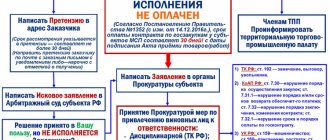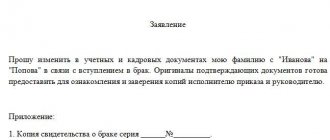What is the difference
In procurement, contract and agreement differ quite significantly. And mainly due to the fact that the first of them is regulated by law 44-FZ, and the second by law 223-FZ. The second law gives the customer much more freedom. For example, they can independently choose the method of determining the supplier, while Law 44-FZ strictly regulates this issue.
The Public Procurement Law regulates almost all aspects - from procurement planning to acceptance of contract results. Any deviation from its norms is punishable by fines. In contrast, Law 223-FZ leaves almost all decisions to the parties to the contract.
What is a procurement contract?
Unlike a contract, an agreement can be concluded between any persons. The party to the agreement can be an ordinary citizen, an individual entrepreneur or an organization of any type. Including a state corporation or monopoly, a company with state participation, as well as a budgetary institution or unitary enterprise (in terms of purchases using its own funds and not from budgetary funds). In this case, the mentioned persons make purchases within the framework of Law 223-FZ. When the winner is determined, a contract is concluded with him.
You can find out who can become the executor of the contract under 223-FZ from this material.
Purchases from a single supplier under 223-FZ in 2021
Purchasing from a single supplier (performer, contractor) is a fairly popular method of purchasing from customers under Federal Law 223, since in 2021 the legislation still does not establish any restrictions for the purchase of goods, works and services directly, without competitive procedures.
- The only necessary condition is the establishment of possible cases of procurement from a single supplier in the Procurement Regulations (Part 2, Article 2, Part 3.2, Article 3 of Law 223-FZ).
The most common cases of purchases from a single supplier are purchases for a small amount (so-called small-volume purchases), for example, no more than 100 or 500 thousand rubles, purchase of services of natural monopolies, electricity supply, water supply, sewerage services, communication services, mail and providing access to the Internet, expenses for sending employees on business trips, purchasing unique goods, works and services, concluding contracts based on the results of failed competitive procedures, etc.
The absence of possible claims against it from dissatisfied suppliers and inspection bodies will depend on how carefully the customer approaches the compilation of this list.
- Another important feature of direct purchases worth more than 100 (500) thousand rubles in 2021 is that Law 223 Federal Law gives customers the opportunity not to post information about them in the Unified Information System, namely notices, documentation and draft contracts. But if desired, you can provide in the Regulations that these documents will be posted.
In any case, information about such purchases must be included in the procurement plan (Part 15, Article 4 of Law 223-FZ), and information about the conclusion of contracts based on the results of these purchases must be placed in the register of contracts within 3 working days (Part 2, Article 4.1 Law 223 Federal Law).
Exceptions to this requirement are agreements for the provision of various types of financial services (deposits, credits, loans, trust management, cash settlement services, etc.), as well as agreements of purchase and sale, lease (sublease), trust management of state or municipal property, etc. contracts providing for the transfer of rights of ownership and (or) use in relation to real estate. Information about such purchases is not required (but not prohibited) to be included in the plan and in the register of contracts, regardless of their amount.
When placing information about an agreement with a single supplier (performer, contractor) in the register, starting from 2021, it is necessary to indicate the price of a unit of goods, work, or service. And the results of contract execution must now be posted based on the results of each acceptance and payment, and not after full execution, as was previously the case. The deadline remains the same - 10 calendar days.
- Another key change in Law 223-FZ is associated with the entry into force of Law 86-FZ on April 16, 2021, which obliges customers to provide in the Procurement Regulations the procedure for determining and justifying the price of a contract concluded with a single supplier (performer, contractor), including the procedure determining the price formula that establishes the rules for calculating the amounts payable by the customer to the supplier during the execution of the contract, determining and justifying the price of a unit of goods, work, services, determining the maximum value of the contract price. Customers have 90 days to make appropriate adjustments, that is, until July 15 inclusive. Until the Regulations are adjusted, contracts can be concluded according to the old rules.
The difference between the contract is that it also applies to oral agreements between the parties.
The features of the state contract under 44-FZ are the following points: One of the parties is the state customer.
The timing of signing is clearly regulated by 44-FZ (for example, for an auction - no earlier than 10 days after publication of the final protocol). The conditions necessarily include the immutability of the price and its fixed value, the supplier’s responsibility for failure to contract, the terms of payment and the procedure for making it, security requirements, the acceptance procedure, conditions for canceling the contract, etc.
For some types of contracts, the EIS today contains 9 mandatory documents for use when conducting procurement in the relevant industry: for the supply of medical products, the provision of exhibition services, servicing vehicles, etc. When the parties sign an agreement, and when - a contract 44-FZ does not contain any or additional instructions and requirements that the document with the terms of execution of the government order must be called a “contract” or “agreement”.
At the same time, based on the provisions of Art. 431 Civil Code and paragraphs. 1.6 tbsp. 13 of the APC, when considering a dispute under a contract in court, the court will take into account the essence of the relations that it regulates. That is, it will not matter whether the agreement is signed by the parties or the contract, nor other terminology.
Accordingly, any contract signed by a state or municipal customer for construction or contract work will be qualified according to the standards of paragraph 5, Chapter. 37 of the Civil Code as a contract for contract work, and a contract for the supply of goods under paragraph 4 of Ch. 30 “Purchase and sale” as a supply contract.
According to the recommendations of the Ministry of Economic Development according to letter No. D28i-1889 of 2014, when choosing the form of registration of a transaction under 44-FZ, the following names should be followed: budgetary institutions - sign civil contracts; municipalities – municipal contracts; government agencies, extra-budgetary funds, government institutions - government contracts.










